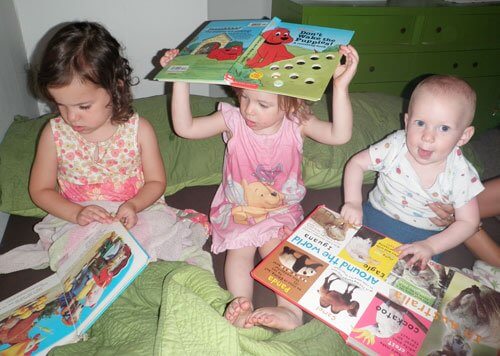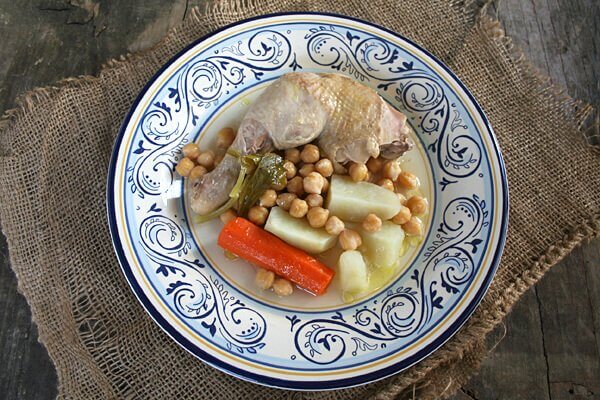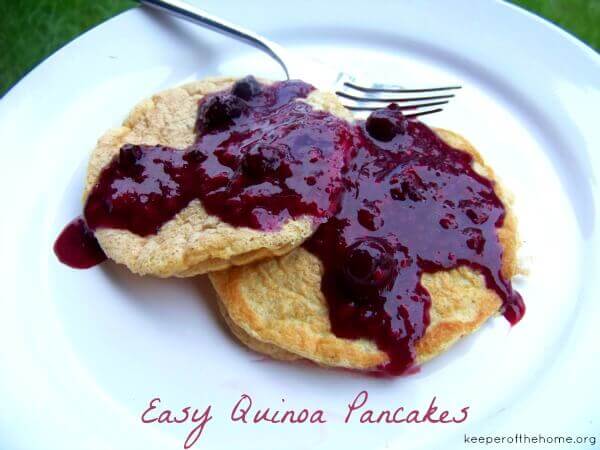Raising healthy eaters- What to feed baby
In my post last week, I discussed the importance of ensuring that your baby is truly ready, waiting longer than the typical age promoted by most doctors and books, and focusing on breastmilk as the foundation for baby’s nutrition.
So now that you’ve determined that your sweet baby is ready to eat some solid foods, what do you start with?
Before I launch into what I believe are appropriate foods for a baby to begin eating, I will mention some foods that I do not believe are appropriate as first foods. I would not suggest serving grains to a baby under one year of age, and even then, it is best to start slowly with less allergenic grains and make sure that they are properly prepared (but I will discuss this in more details in a few moments).
Why not grains? Isn’t rice cereal supposed to be a great first food for any baby? In my opinion (and that of many others, far more educated than myself), no, it really isn’t. Babies immature digestive systems are just not well equipped to handle the more complex digestion that goes along with complex carbohydrates.
An unfortunate practice in industrial societies is the feeding of cereal grains to infants. Babies produce only small amounts of amylase,
needed for the digestion of grains, and are not fully equipped to handle cereals, especially wheat, before the age of one year. (Some experts
prohibit all grains before the age of two.) Baby’s small intestine mostly produces one enzyme for carbohydrates—lactase, for the digestion of
lactose. (Raw milk also contains lactase.) Many doctors have warned that feeding cereal grains too early can lead to grain allergies later on.
Excerpt of this article on feeding babies, taken from Nourishing Traditions
Then what are ideal beginning foods for a hungry baby? Believe it or not (and I didn’t when I first started studying about it, but having researched it more, I have been convinced), animal products such as meat and poultry are excellent first foods.
There are a few reasons for this. One is that the enzymes that babies do have are intended for the digestion of mother’s milk, which is essentially composed of protein and fats. These enzymes enable a baby to digest meats far easier than carbohydrates (such as grains), for example. Secondly, rather than serving a cereal that has been fortified to ensure that baby receives adequate iron, zinc and other essential nutrients, it is better to serve a whole food that comes complete with these nutrients already, in it’s natural form. Several studies (see this article) have shown that protein, iron and zinc levels were all higher (as well as increased rates of calcium absorption) in infants that received meat, rather than cereal, as an early food. It many cultures, pureed meats have been a traditional first food.
Aside from meat, vegetables and fruits should round out your baby’s early foods. Some excellent vegetable choices include (but are not limited to): sweet potatoes, carrots, turnips (or parsnips), beets (although my MIL says that beets should be fresh, with the beet greens on them, rather than stored beets, which can develop nitrates over time), squash, zucchini, peas, green beans, etc. These are best steamed and then pureed, with a little bit of butter, which provides nutrients that aid in digestion.
As for fruit, mashed ripe bananas are a great choice (also very convenient and quick), because they are rich in the enzyme amylase. Also good are apples and pears (which should be cooked, rather than raw), apricots, mangoes, papaya, peaches, etc. Another great convenience food are avocados- they are creamy and delicious to babies, and the perfect food to take with you when you need to go out. Avocados were my daughters absolute favorite for a long time, and she will still (at 3 years old), just sit and spoon them out of their skin. Their fats are very healthy and beneficial.
One other food that may be given to younger babies is cooked egg yolk
(but not the whites, until after the first year, as these are more
highly allergenic). Personally, we have some egg sensitivities in our
family which I discovered with our daughter, so I will not give them to
my son until he is a little bit older, but for those with no
sensitivities, they are a fantastic source of protein, good
cholesterol, and omega 3 fatty acids (if they are free run or organic).
Lastly, as baby gets closer to that one year mark and has been tolerating other foods well, you can introduce a little bit of organic, fermented dairy products, such as yogurt and kefir. I have read that you can also introduce raw milks and raw hard cheese, though personally I would prefer to wait a little bit longer for those foods, sticking with those items that include beneficial bacteria to ensure proper digestion. Also, I would not suggest giving regular, pasteurized cow’s milk to
any child under the age of 3, under any circumstance, as it is extremely
difficult on their systems and very often results in a milk or dairy
allergy.
After your baby is one year old, you may wish to consider slowly introducing grains. Start off with the less allergenic grains, such as brown rice, millet, quinoa. Other grains such as oats, barley, spelt and kamut may be soaked overnight, with a little yogurt or buttermilk, and then cooked into a porridge. Wheat should be saved for last, and may even be wisely avoided for the first 2-3 years. Although we avoided wheat until after a year for our daughter, she still showed sensitivity, and is only now at 3 able to eat small amounts of wheat, organic and properly prepared (soaked, sprouted or sourdough- the 3 S’s of grain preparation!).
An excellent article, with very specific recommendations and even help for preparing baby food and what quantities to give, is Nourishing a Growing Baby, from the Weston A. Price Foundation website. Although I do not agree with feeding quite as early as is mentioned in the article, I think that it is otherwise a great resource. Another book that I have found useful (although again, a few slight disagreements, perhaps partly due to this book being written in the 1970’s, although it is in line with many principles of the Price-Pottenger Foundation), is Better Food for Better Babies.
And although I certainly don’t wish to beat a dead horse, I would just like to emphasize that as always, we need to watch our babies carefully, looking for signs of indigestion, intolerance or sensitivity, and back off at the first sign of distress with any food. If this occurs, wait on it for several months at least before re-introducing.
Next up in this series are baby food recipes and a step-by-step tutorial for making and freezing your own baby foods!







Thank you for the information…
I had my babies [at 6 months] first food was broth then I added puree vegetables. I just did broth because it made sense to me and seems more fulfilling than cereal and I didn’t want to do processed foods like baby cereal and I can’t believe how many weird looks I get. Everyone has seemed to believe that the first food has to be cereal [grain] and even okay to feed as young as 4 months. I’ll have to check out the books and literature about it so I can back up my broth/meat then vegetables logic with facts.
Thank you for your post!
What a very informative post! Thank you.
I have breastfed all three of my boys – still with the baby (8 1/2 months). We had no food allergies with the first or second, but the baby is allergic to milk products. We found out from his first bottle of formula. I was at a funeral and there was a mix-up in the directions for the sitter. She gave him formula instead of frozen breast milk. Anyway… he had an anaphylactic reaction and was sent to the ER via ambulance. I whole heartily agree with you on taking it slowly when feeding baby and introducing new foods.
I am very intrigued by the meat introduction as a first food, although it really makes complete sense.
I look forward to your future posts on feeding baby. Very interesting. Thanks again!
We did avocado first, and followed that with banana and then some meats. 🙂
By the way, thanks so much for the breastfeeding info last week. I am still nursing my 3 1/2 month old and wasn’t ready to start thinking about solid foods yet. You gave me the info I needed to be confident to continue for a few more months.
Thank you so much for this post. With my first child I fed her like her pretty much like “everyone tells you to do” and she has very bad milk allergies and wheat allergies. With my 8 month old I have just started to introduce some solid foods. He has been only breastfed till now and he is a big boy for his age.